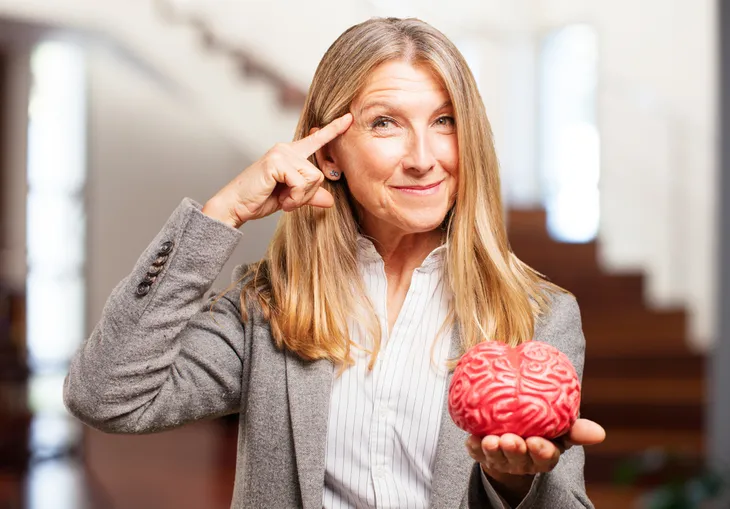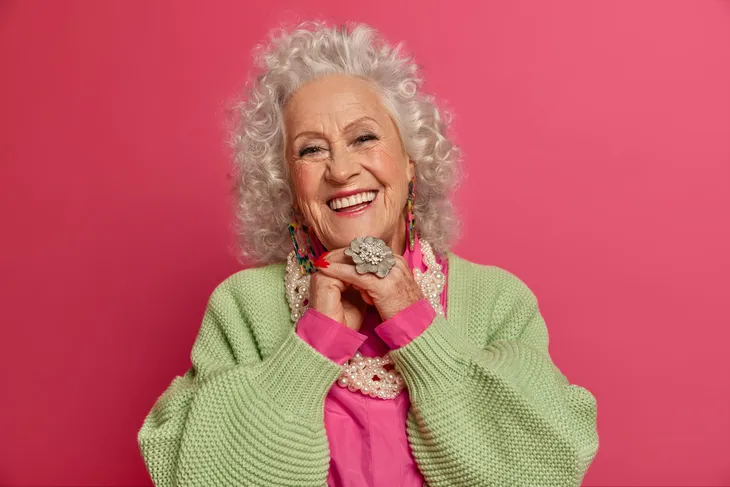As we age, we experience many major life changes from children leaving home to retirement and even physical health changes too. Coping with changes can be difficult but one of the best things we can do is accept the changes and persevere with a positive outlook and adapt along the way.
Creating a healthy daily routine can help you cope with changes and can also help you create a sense of control and independence. Routine can also help manage stress, help you sleep, and help your overall health. With that in mind, let’s explore 10 things seniors should be doing every day!
Sleep Well Every Day
Did you know sleep plays a very important role in your overall health? The National Heart, Lung, and Blood Institute explains, “During sleep, your body is working to support healthy brain function and maintain your physical health.”
Sleep deprivation could put you at risk for heart disease, high blood pressure, stroke, and more. Healthy older adults need about 7 to 9-hours of sleep per night. If you’re not getting enough sleep or if you wake up feeling tired often then it might be time to make some changes. If you need help sleeping, then check out these sleeping tips for seniors.
Stretch Every Day
Are simple tasks like getting out of a chair or reaching for items getting more difficult as you get older? This might be an indication that you’re losing flexibility. Muscles and tendons can become stiffer and less flexible as we age, but the good news is stretching regularly can help improve your flexibility making day-to-day tasks much easier!
To maintain or improve flexibility, it would be a good idea to start implementing a simple stretching program in your daily routine. It doesn’t have to be complicated either! You can do a few stretches in the morning, in between commercial breaks while you’re sitting in a chair, or before bed. Get started with these stretching exercises seniors should be doing every day.
Eat Meals that Fuel Your Body Every Day
It’s important that you eat nutritious meals every day. While this message may sound like a broken record, it really is important. Eating a well-balanced diet helps you stay energized, provides your body with the nutrients it needs, helps manage your weight, and also can help lower your risk of developing chronic health conditions.
Enjoy meals that fuel you. This means, reach for foods that are rich in fiber, minerals, vitamins as well as other essential nutrients to meet your nutritional needs. It’s also a good idea to limit the number of processed foods you consume.
For more ideas, check out these everyday foods all seniors should be eating! We also recommend speaking with a health professional to determine what foods you should be eating.
Stay Hydrated Every Day
As we age, our sense of thirst diminishes. This means that you might not even realize that your body needs to be replenished with water. This is all the more reason to drink water and stay hydrated every day. You might even need to track your water intake until you get into the habit of drinking enough every day.
Harvard Health explains, “Drinking fluids is crucial to staying healthy and maintaining the function of every system in your body, including your heart, brain, and muscles.” Fluids play an important role in carrying nutrients to your cells as well as flush bacteria from your bladder, and also helps prevent constipation.
Stimulate Your Mind Every Day
Your brain is responsible for thinking, learning, memories, emotions, motor function and so much more. This is why taking care of your brain health is important, especially as we get older. To take care of your brain health, you’ll need to eat a healthy diet, manage stress and high blood pressure, stay physically active, and try to stimulate your mind every day.
There are plenty of fun activities that will help keep your brain young such as playing games, making jigsaw puzzles, learning new skills and so much more. Simply, find something you enjoy doing and add it to your daily routine.
Practice Stress Management Every Day
Did you know stress can affect your physical health and your mental health? Stress management is even more important as we get older because our cells are aging making it harder for the body to bounce back after responding to stress.
Furthermore, high levels of stress are linked to conditions such as high blood pressure, heart disease, a weakened immune system, and more. This is why practicing stress management every day is important for your health.
There are many ways seniors can start managing stress. Some of these include sticking to a routine, exercising, joining a support group or seeking therapy, journaling, and more. Managing stress will help you feel healthier, happier, and will help you be more productive.
Practice Gratitude Every Day
Gratitude is the quality of being thankful. Practicing gratitude can help you feel more positive as it allows you to appreciate good experiences. Health Harvard explains, “In positive psychology research, gratitude is strongly and consistently associated with greater happiness.”
Positive thinking may also improve your health, help you deal with difficult situations, and build stronger relationships. It’s easy to start practicing gratitude every day. For starters, each day you can take time to think of three things you are grateful for. You may also enjoy writing a gratitude journal and commit to writing down positive things every day. You may just be surprised how much this changes your perspective on life.
Move Your Body Every Day
Physical exercise is important for everyone but especially as we get older. Some of the benefits of regular exercise for seniors include maintaining strong joints, building strong muscles, improving heart and lung health, and maintaining your independence.
We’re not saying you need to engage in an intense workout every single day but it is a good idea to move your body in some form daily. This could include going for a walk, gardening, riding a bike, practicing yoga, or trying an at-home workout. For more ideas, check out these easy exercises for seniors!
Connect with Friends and Family Every Day
Social isolation can negatively impact your mental and physical health. The National Institute on Aging states there is research that links social isolation to loneliness. But that’s not all. It can also increase your risk of heart disease, depression, cognitive decline, Alzheimer’s disease, high blood pressure, obesity, and more.
In contrast, studies have shown that people who engage in meaningful activities with others tend to live longer. It can also boost your mood and give you a sense of purpose. This is all the more reason to stay connected with friends and family every day.
You can stay connected by finding a hobby and connecting with like-minded people, calling a friend or family member daily, or you can embrace social media. The internet can help you stay connected with family and friends and may also help you meet new friends!
Take Time for Self-Care Every Day
Lastly, don’t forget to take time for yourself every day. What is self-care anyway? Self-care is defined as, “…any activity that we do deliberately in order to take care of our mental, emotional, and physical health.” It’s important to remember that self-care is not a selfish act. In fact, we need to take care of ourselves in order to take care of others.
Self-care should include anything you enjoy doing that refuels you. This could be something as simple as taking a warm bubble bath or making that doctor’s appointment you’ve been putting off. Self-care can also be nourishing your body with healthy foods or taking time to exercise.













